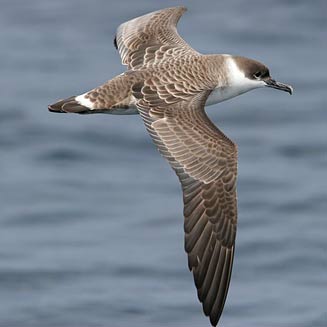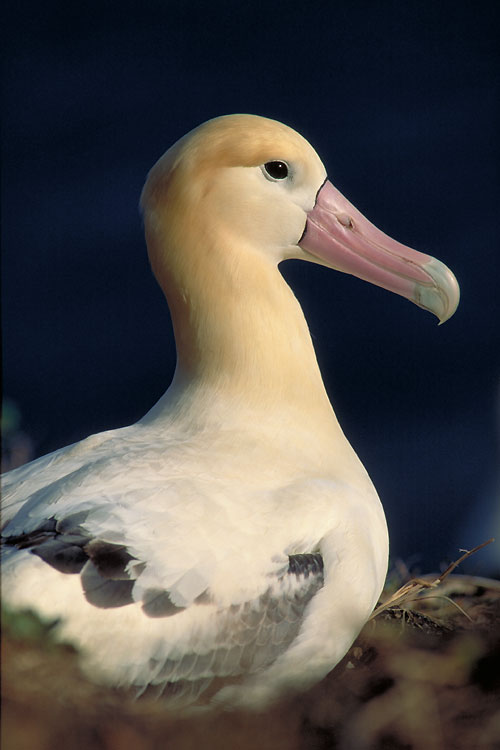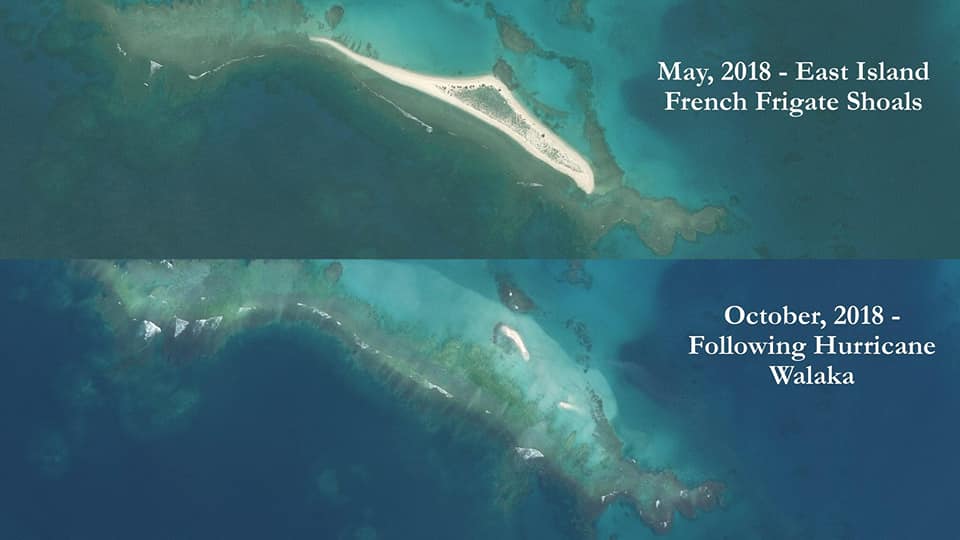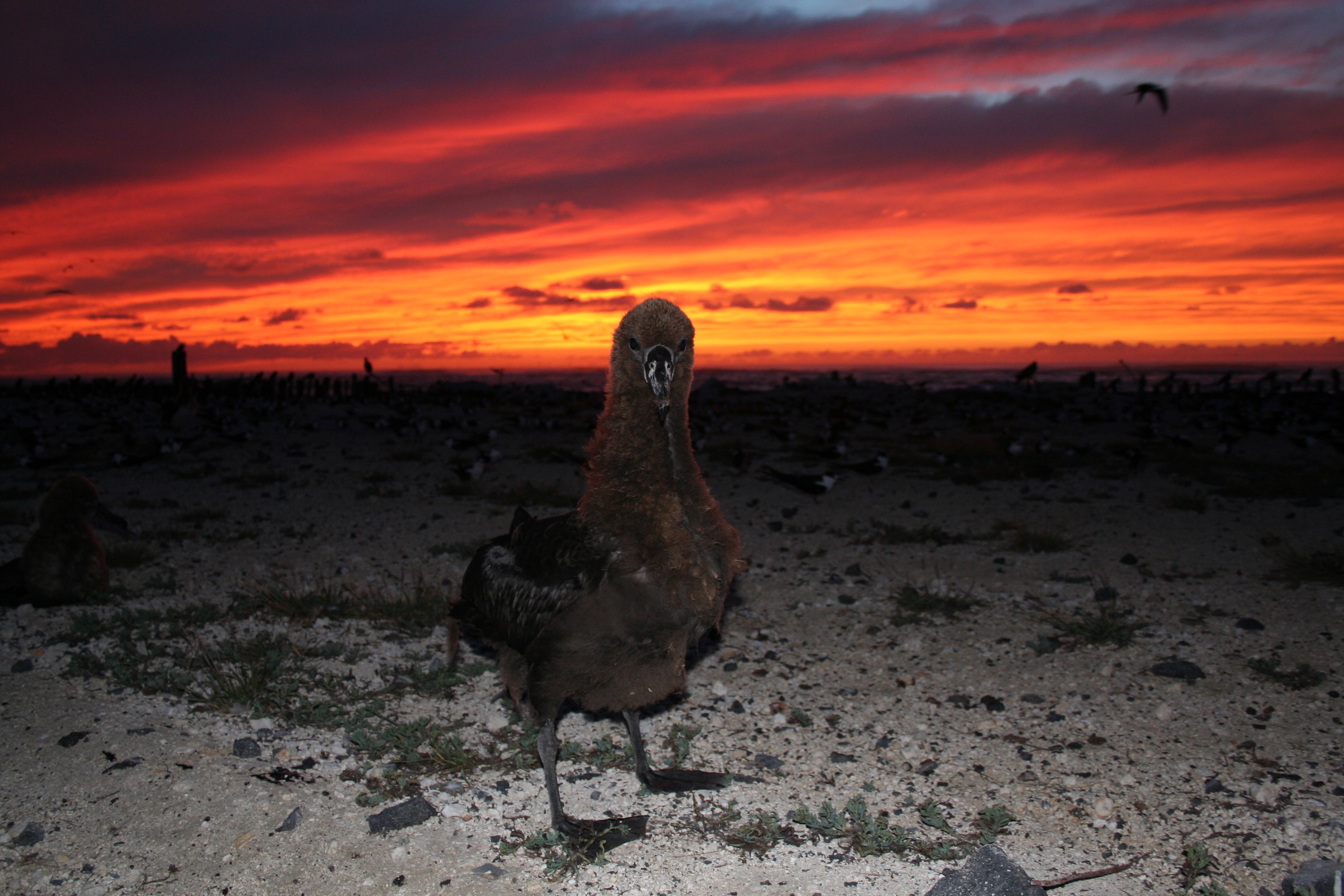Lindsay Young (Pacific Rim Conservation, Honolulu, Oahu, Hawaii, USA) and colleagues have published a technical report that describes the details of a project that has been translocating globally threatened Newell’s Shearwater Puffinus newelli and Hawaiian Petrel Pterodroma sandwichensis chicks on the Hawaiian island of Kauai to within a predator-proof fenced site.
The report’s Executive Summary follows:
Newell’s Shearwater (Puffinus auricularis newelli; NESH) and Hawaiian Petrel (Pterodroma sandwichensis; HAPE) are both listed under the Endangered Species Act of 1973 and are declining due to collisions with power lines and structures, light attraction, predation by feral cats, pigs, rats, and introduced Barn Owls, habitat degradation by feral ungulates (pigs, goats) and invasive exotic plants. Protection of NESH and HAPE on their nesting grounds and reduction of collision and lighting hazards are high priority recovery actions for these species. Given the challenges in protecting nesting birds in their rugged montane habitats, it has long been desirable to also create breeding colonies of both species in more accessible locations that offer a higher level of protection. Translocation of birds to breeding sites within predator exclusion fences was ranked as priority 1 in the interagency 5‐year Action Plan for Newell’s Shearwater and Hawaiian Petrel. In 2012, funding became available through several programs to undertake this action at Kīlauea Point National Wildlife Refuge (KPNWR), which is home to one of the largest seabird colonies in the main Hawaiian Islands. The project was named the “Nihoku Ecosystem Restoration Project” after the area on the Refuge where the placement of the future colony was planned. The Nihoku Ecosystem Restoration Project is a result of a large partnership between multiple government agencies and non‐profit groups who have come together to help preserve the native species of Hawaiʻi. There were four stages to this multi‐faceted project: permitting and biological monitoring, fence construction, restoration and predator eradication, followed by translocation of the birds to the newly secured habitat. The translocation component is expected to last five years and involve up to 90 individuals each of NESH and HAPE. Prior to fence construction, baseline monitoring data were collected in order to provide a record of initial site conditions and species diversity. Surveys were conducted quarterly from 2012‐2014, investigating diversity and richness of plant, invertebrate, mammalian, and avian species. A 650 m (2130 ft) long predator proof fence was completed at Nihoku in September 2014, enclosing 2.5 ha (6.2 ac), and all mammalian predators were eradicated by March 2015. From 2015‐2017, approximately 40% of the fenced area (~1 ha) was cleared of non‐native vegetation using heavy machinery and herbicide application. A water catchment and irrigation system was installed, and over 18,000 native plants representing 37 native species were out‐planted in the restoration area. The plant species selected are low‐in‐stature, making burrow excavation easier for seabirds while simultaneously providing forage for Nēnē (Branta sandvicensis). Habitat restoration was done in phases (10‐15% of the project per year) and will be continued until the majority of the area has been restored. In addition to habitat restoration, 50 artificial burrows were installed in the restoration to facilitate translocation activities. From 2012‐2017 potential source colonies of NESH and HAPE were located by the Kauaʻi Endangered Seabird Recovery Project (KESRP) with visual, auditory, and ground searching methods at locations around Kauaʻi. The sites that were selected as source colonies for both species were Upper Limahuli Preserve (owned by the National Tropical Botanical Garden; NTBG) and several sites within the Hono o Nā Pali Natural Area Reserve system. These sites had high call rates, high burrow densities to provide an adequate source of chicks for the translocation, and had active predator control operations in place to offset any potential impacts of the monitoring. Translocation protocols were developed based on previous methods developed in New Zealand; on the ground training was done by the translocation team by visiting active projects in New Zealand. In year one, 10 HAPE and eight NESH were translocated, and the goal is to translocate up to 20 in subsequent years for a cohort size of 90 birds of each species over a five year period. Post‐translocation monitoring has been initiated to gauge the level of success, and social attraction has been implemented in an attempt to attract adults to the area. It is anticipated that the chicks raised during this project will return to breed at Nihoku when they are 65‐6 [sic] years old; for the first cohort released in 2015 this would be starting in 2020. Once this occurs, Nihoku will be the first predator‐free breeding area of both species in Hawaiʻi.”
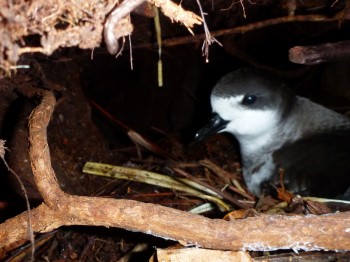
Hawaiian Petrel in its burrow, photograph by André Raine
Reference:
Young, L.C., Behnke, J.H., Vanderwerf, E.A., Raine, A.F., Mitchell, C., Kohley, C.R., Dalton, M., Mitchell, M., Tonneson, H., DeMotta, M., Wallace, G., Nevins, H., Hall, C.S. & Uyehara, K. 2018. The Nihoku Ecosystem Restoration Project: a Case Study in Predator Exclusion Fencing, Ecosystem Restoration, and Seabird Translocation. Pacific Cooperative Studies Unit Technical Report No. 198. Honolulu: Department of Botany, University of Hawai‘i at Mānoa. 83 pp.
John Cooper, ACAP Information Officer, 27 November 2018
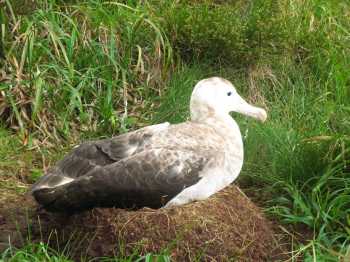

 English
English  Français
Français  Español
Español 